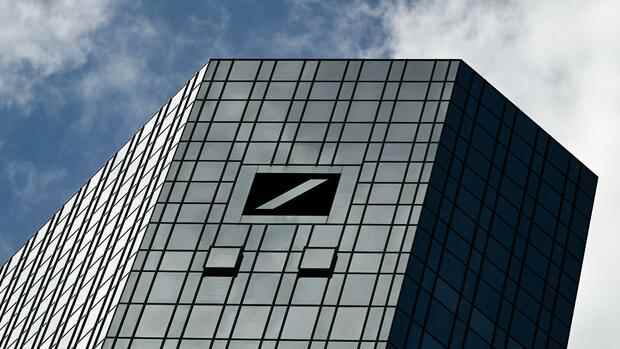Frankfurt Deutsche Bank is again in trouble with the law enforcement authorities: On Tuesday morning, public prosecutors launched raids on the twin towers of Deutsche Bank and on the neighboring building of the fund subsidiary DWS. According to its own statements, the authority is investigating the initial suspicion of capital investment fraud.
Specifically, it is about the accusation of so-called greenwashing against DWS. The listed asset manager, in which Deutsche Bank holds a majority, is suspected of having systematically exaggerated its commitment to sustainability and green investments.
DWS has been confronted with the allegations since its former sustainability officer Desiree Fixler went public with it in August 2021. Fixler initially contacted the US Securities and Exchange Commission (SEC) and the American federal police, the FBI. Official investigations in the USA and Germany were the result.
According to the public prosecutor, reports in the international and national media triggered the case for the raid on Tuesday, according to which the asset manager DWS, when marketing so-called “green financial products” (ESG products – environment, social, governance), made these financial products “greener” or “ more sustainable” than they actually are.
Top jobs of the day
Find the best jobs now and
be notified by email.
The public prosecutor’s office also referred “among other things to statements by a former manager of DWS”: “After an examination, there were sufficient factual indications that, contrary to the information in the sales prospectuses of DWS funds, ESG factors were only actually taken into account in a minority of the investments , but have not received any attention in a large number of investments (“prospectus fraud”),” said the spokeswoman for the authority, Nadja Niesen.
Around 50 officials from the public prosecutor’s office, the financial supervisory authority Bafin and the Federal Criminal Police Office were involved in the raid, Niesen told the Handelsblatt. “The investigations have been running since the beginning of the year and are still aimed at unknown persons,” she explained.
A spokesman for the fund subsidiary confirmed the searches and said: “DWS has been cooperating fully with supervisory authorities and regulators on this issue for over six months. Our company statement of August 26, 2021 remains unchanged.” In it, DWS emphasized that it still stands by the statements on sustainability in its annual reports and rejects the allegations made by former employee Fixler.
Deutsche Bank declined to comment on the searches beyond the DWS statement. After the report, the shares of Deutsche Bank and DWS initially fell significantly by more than four percent, but recovered at least partially by midday.
Setback for DWS boss Asoka Wöhrmann
The searches on Tuesday caused a great deal of excitement within DWS. “It’s a slap in the face,” said one employee. After the allegations had recently calmed down, news of the investigations from the USA was expected, but no longer from Germany.
The searches are a setback for DWS boss Asoka Wöhrmann, who has to face a general meeting on June 9th. The manager is not only under pressure because of the greenwashing allegations.
The bank has also been investigating for months whether and to what extent Wöhrmann used private e-mail accounts for business messages, which would violate the bank’s internal rules. According to information from financial circles, these investigations are still not complete.
In the financial sector, it is expected that the ongoing problems will soon lead to personnel consequences. An institutional investor said it would probably result in either DWS boss Wöhrmann or DWS supervisory board chairman Karl von Rohr, who is responsible for private customer business on the Deutsche Bank board, having to step down.
The greenwashing allegations against DWS are also a burden for Deutsche Bank. There are voices within the institute who fear that the negative headlines from DWS could rub off on Deutsche Bank’s credibility in this area.
Because the money house sees great business opportunities in the area of sustainability and wants to position itself in public as a pioneer in this field. The bank recently announced, for example, that from July it would require a sustainability rating from an external rating agency from its suppliers for larger orders. From 2023 onwards, suppliers must also achieve a minimum rating. This should apply to every new or extended contract of more than 500,000 euros per year.
The raid also shows that the bank still needs to improve on regulatory issues. Most recently, Deutsche Bank had trouble with the law enforcement authorities at the end of April. At that time, investigators from the public prosecutor’s office, the Federal Criminal Police Office and Bafin officials searched the money house on suspicion of deficiencies in the fight against money laundering.
Background to the action: business affairs of former Syrian Vice President Rifaat al-Assad. According to financial circles, he was not a customer of Deutsche Bank. But as part of its correspondent banking business, the money house is said to have been involved in payments from the Assad clan.
More: The US Securities and Exchange Commission proposes new rules for sustainable investments
